Department of Behavioral Sciences & Services
Second Chance Pell Grant Program
Second Chance Pell at Bowie State University
We’re excited to be part of this new cohort of Second Chance Pell sites. A majority of incarcerated people in Maryland Correctional Institutions are Pell-eligible, but they’ve been banned from using Pell grants to access postsecondary education since 1994.
Evidence shows that quality postsecondary education changes lives for the better. It’s a transformative experience that improves safety both within prisons and across communities, and strengthens families.
We believe our participation in Second Chance Pell will improve opportunities for incarcerated people and lead to safer prisons and safer communities. Here’s why:
Improves Safety in Prisons
- We know that access to postsecondary education improves prison safety for incarcerated people and corrections employees alike.
- Individuals who are serving long sentences are often seen as mentors to other incarcerated people, and when they participate in postsecondary education, it sets an example for others and a positive tone for the prison overall.
- As a result, we see lower instances of violence in prisons with postsecondary education programs. And these programs ensure people are equipped with the skills they need to succeed once they return home.
- When people who have access to postsecondary education do return home, the data shows they are far less likely to recidivate. In fact, research shows that people who participate in postsecondary education programs are 48 percent less likely to recidivate than those who don’t.
Strengthens Communities & Families
- Postsecondary education is never about just one person; it creates a ripple effect.
- People who can access postsecondary education in prison describe the experience as transformative. That’s because these learning experiences help people regain a sense of their humanity, offer a sense of hope for the future, and set them up to return home with fresh perspectives and goals for how they can contribute to their community.
- Postsecondary education strengthens families, too: Children of incarcerated students who see their parents accessing coursework are more likely to pursue their own postsecondary education.
Remains a Sound Investment in Our Future
- This is an uncertain time for all Americans, and there’s no doubt that there’s a significant burden on policymakers right now.
- The Second Chance Pell Initiative remains an important and sound investment in our future, because it improves safety and sparks opportunity.
- Access to postsecondary education creates safer prisons and safer communities.
- Safer prisons and safer communities translate directly into lower criminal justice expenditures for local and state budgets. That’s funding that can and should be directed elsewhere.
- And the opportunity that education offers to break painful cycles of poverty and involvement in the criminal justice system present an additional value-add to communities, particularly at this critical moment.
- As we navigate the months ahead and determine what comes next, both safety and opportunity will be central to the sound shepherding of resources and the strengthening of communities and families.
- Expanding access to postsecondary education in prison is a strategy that works and as such it’s one of the many investments we must continue driving forward.
